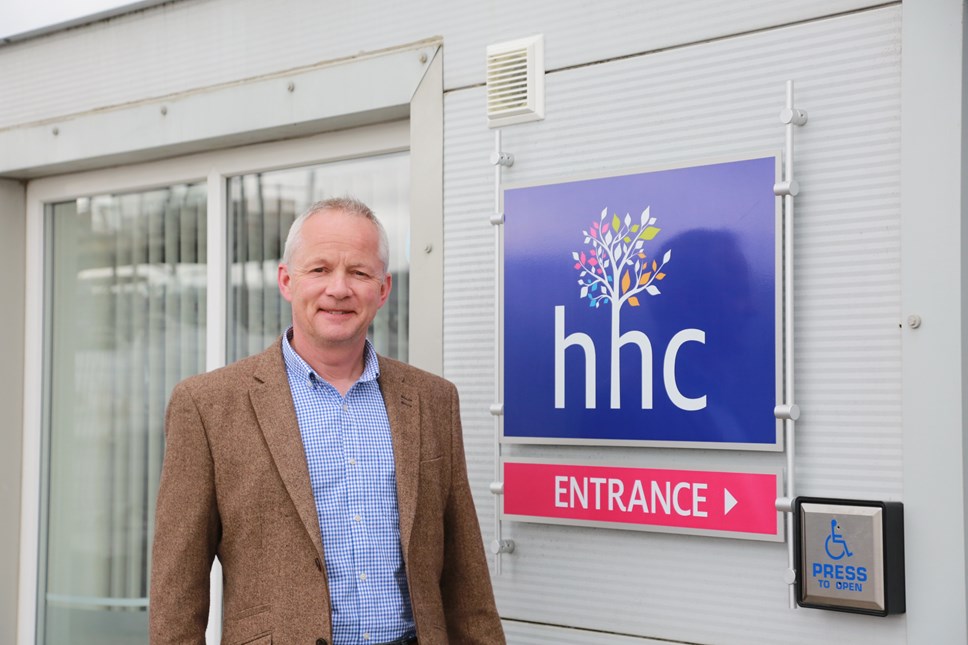
Employee-owned businesses demonstrate resilience and boost the Scottish economy
Research shows that employee-owned businesses approach to fair work demonstrates financial and social resilience despite the impact of the Covid-19 pandemic.
New research into the resilience of employee-owned companies during the Covid-19 pandemic has found that a significant focus on people, job security, health, equality and wellbeing has led to increased business turnover and improved staff retention at a time when many businesses have experienced the opposite.
Over half of those surveyed experienced growth over the last year in the research carried out by the University of St Andrews on behalf of industry leadership group ‘Scotland for Employee Ownership (SfEO) and Co-operative Development Scotland (CDS) at Scottish Enterprise.
The findings are presented ahead of Co-operative Fortnight (21 June – 4 July) and Head of Co-operative Development Scotland Clare Alexander said: “Covid-19 has had a huge impact on the economy and this survey shows that a more collective approach to business can bring many benefits.
“The findings indicate that resilience among employee-owned businesses is both financial and social, suggesting important lessons for building back a better and more inclusive economy.
“Through the pandemic, Scottish Enterprise, through the CDS service, supported over 20 firms towards a shared ownership model and that fits with our business plan to create a more inclusive, equal and fair Scottish economy.”
Minister for Public Finance, Planning and Community Wealth, and SfEO co-chair, Tom Arthur MSP said: “I’m pleased to see this research, which clearly shows that employee-owned companies have fared better during the pandemic than their non-employee-owned counterparts.
“We need businesses that can nimbly adapt to change, while also contributing to a fairer, more inclusive society. Employee ownership, in my view, is a great way to help achieve our ambition of a resilient wellbeing economy.”
The employee owners at Highland Home Carers (HHC) in Inverness, Scotland’s largest employee-owned business, used its employee-owned status to support staff through the Covid-19 pandemic.
Over the course of the pandemic the company continued to provide pay increases, profit share schemes, enhanced sick pay and an extensive Employee Assistance Programme.
Highland Home Carers Managing Director Campbell Mair said: “In the face of a global crisis, we can all feel extremely proud of our organisation, our roles, and the work we do. We are right to say that each and all our workforce are an absolute credit to themselves, to our organisation, to Social Care, to the people who we care for and support, and to our communities.
“Being unswervingly committed to our Employee Ownership, and valuing our workforce so highly, means that we are delighted to demonstrate inclusive and sustainable growth, shared prosperity, and positive social impact by way of share distribution and profit share.”
Report highlights:
- 90% of employee-owned businesses have all, or most of, their workforce located in Scotland
- 6% of employee-owned businesses have had minor or no issues with retaining employees
- 53% employee-owned businesses experienced turnover growth or did not have their turnover affected by the pandemic (Compared to non- employee-owned businesses: 80% of SMEs say their revenues are declining and 6% increase in revenue and 14% no change)
- 97% employee-owned businesses cited job protection as extremely or very important key organisational objective
- 67% of employee-owned businesses cited ‘paying the living wage’ as an extremely or very important organisational objective
- 75% of employee-owned businesses cited workplace equality as a key organisational objective
- 68% of employee-owned businesses say that employee voice is a key organisational objective
- 88% employee-owned businesses cited long term organisational sustainability as extremely or very important (this far exceeded a concern for share value growth, which was not at all important for 42.5% of employee-owned businesses during the Covid-19 pandemic)
- 83% employee-owned businesses considered employee mental wellbeing as extremely or very important
Contact Information
Elaine Walker
Notes to editors
Notes to editors
Picture caption: Campbell Mair MD of Highland Home Carers, Inverness, Scotland’s largest employee-owned business
Survey info: The survey took place between January and February 2021 and covered 133 employee-owned businesses and worker co-operatives operating in Scotland.
About CDS - Co-operative Development Scotland (CDS) is the arm of Scotland’s enterprise agencies that supports company growth through employee ownership and co-operative business models. There are currently around 150 employee-owned business operating in Scotland, of which over 100 of those are Scottish headquartered companies.
For further information on CDS visit:
Website: www.scottish-enterprise.com/cds
Blog: www.cdsblog.co.uk
Follow CDS on Twitter: @cdscotland
An employee-owned business is one in which the employees hold the majority of the shares, either directly or through an employee ownership trust. Selling to employees allows owners to manage their exit and achieve fair value while safeguarding the long term future of the company. Employee ownership gives employees a meaningful stake in their organisation together with a genuine say in how it is run. It roots business in Scotland, drives performance and delivers economic wellbeing.
Consortium co-operatives are established when businesses come together for a shared purpose; to buy or sell in scale, market more effectively, share facilities or jointly bid for contracts. By collaborating businesses can reduce costs, share risks and create new platforms for growth in the UK and internationally.
Community co-operatives are set up to provide services to communities or develop a community enterprise in all sectors from utilities to distilleries. The model provides communities the opportunity to safeguard essential public services and to develop exciting new opportunities providing wider, economic, social and environmental benefits.
